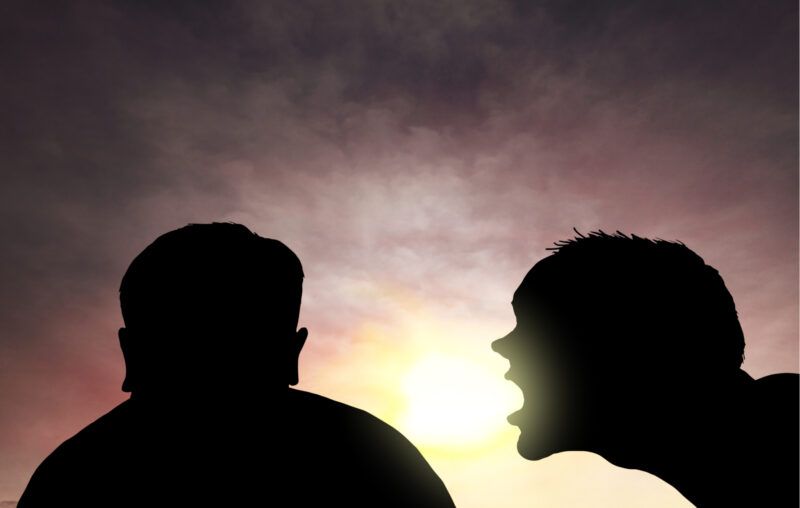
What follows here is part of my response to each of these correspondents. This essay isn’t meant to change their minds but, instead, to better explain why I hold the position that I do toward Covid, as well as toward the public’s and governments’ responses to Covid. For the record, I understand that different individuals have different risk preferences. I genuinely respect these differences.
I understand also that different individuals even have different perceptions of reality. As with the understanding of reality achieved by blindfolded persons each touching a different part of the elephant, reality isn’t revealed to everyone in the same way. Yet I’m sufficiently old-fashioned to believe that there is an objective reality, and that it’s the duty of everyone who comments publicly on that reality to do his or her best to understand it as well as possible, despite the inaccessibility of perfect understanding.
I believe also that, while the range of legitimate differences in this understanding is wide, this range isn’t unlimited. Some understandings are so detached from reality as to be illegitimate – as in, not to be taken seriously. It is for each reader to judge for himself or herself if my understanding of reality, as I express it here (and elsewhere), falls within or outside of the legitimate range.
Below is a list of some of the facts, as I understand them, about Covid-19, as well as about the reaction to this disease. Although some of these facts are more firmly established than are others, I believe that each of the facts detailed below is legitimate, and that my interpretations of them are plausible.
Further, I believe that my understanding justifies my relative lack of anxiety about Covid’s likely impact on me personally and about its impact on humanity. And I believe that the facts as I understand them warrant my description of the media’s, the public’s, and governments’ reactions to Covid as being hysterically excessive.
The Overestimated Dangers of Covid and Underestimated Dangers of Lockdowns
- Covid-19 is disproportionately lethal to the very old and ill, and heavily so. In the United States as of February 17th, 2021, nearly a third (31.8%) of “All Deaths Involving Covid-19” – as defined and reported by the CDC – were of persons 85 years old and older. Nearly 60 percent (59.6%) of these deaths were of persons 75 years of age and older. More than 81 percent (81.3%) were of people 65 years of age and older. Despite media-trumpeted exceptions, serious suffering from Covid-19 is largely an experience for very old people.
- Although Covid-19 is indeed unusually dangerous to very old people, it’s still not close to being a death warrant. The infection fatality rate for 85-year-olds is estimated to be 15 percent; for 75-year-olds it’s estimated to be 4.6 percent. For 65-year-olds, Covid’s infection fatality rate is estimated to be 1.4 percent. For 55-year-olds it’s estimated to be 0.4 percent.
- Covid’s overall lethality compared to that of the seasonal flu is no more than 10 times greater. (Some estimates have Covid’s lethality, compared to that of the flu, to be as low as 3.5 times greater.) Of course, because Covid’s lethality undeniably rises significantly with age, for the elderly Covid is far more than 10 times as deadly than is the flu, and for young people Covid is much less than ten times as deadly. (Keep in mind that the numbers in this and the previous two paragraphs come chiefly from before any vaccines were administered.)
- Since the Spring of 2020, hospitals in the U.S. have had the financial incentive to inflate their Covid numbers. As reported on April 24, 2020, by USA Today, “The coronavirus relief legislation created a 20% premium, or add-on, for COVID-19 Medicare patients.” Covid inflation occurred outside of the U.S. as well. In Toronto, for example, officials admit that they are inflating the Covid death count: Here’s Toronto Public Health: “Individuals who have died with COVID-19, but not as a result of COVID-19 are included in the case counts for COVID-19 deaths in Toronto.” (I encourage you to read the whole Twitter thread.)
- Lockdowns themselves have negative health consequences. How could they not, even if the only such effect arises because of people’s increased difficulty of visiting physicians for non-Covid-related illnesses and injuries? But there is evidence that negative health consequences of lockdowns extend beyond those that arise from delayed or foregone medical treatments.
- There is credible evidence that lockdowns do not significantly reduce people’s exposure to the coronavirus.
- Lockdowns have negative personal and social consequences. Avoiding contact with family and friends, even during holidays. Inability to fraternize at your favorite gym, coffee shop, bar, or restaurant. Restrictions on travel. Even if you believe that these costs are worth paying, you cannot deny that these costs are serious.
- Lockdowns have a severe negative impact on economic activity. How could they not, given that people are prevented from going to work and from engaging in much ordinary commercial activity? There’s debate about how much of the decline in economic activity is caused by voluntary action and how much is caused by the forcible lockdowns. Even in light of the likelihood that people’s fear of Covid is further stoked by the very fact that governments’ resort to the dramatic action of locking us down, evidence exists that a great deal of economic damage was caused by the lockdowns themselves.
Misinformation and Misunderstanding are Rampant
- I never recall the media giving running accounts of deaths from seasonal flu, from auto accidents, from heart disease, or from any other major sources of death. But the media do give such accounts of Covid. The false impression is thus created that the dangers posed by Covid differ categorically from the dangers posed by other of life’s serious risks. I find it incredible to suppose that such out-of-context and biased reporting does not give the general public a terribly distorted and outsized impression of Covid’s dangers – an impression that is then reinforced by people communicating with each other.
- Panic itself is contagious. As Gustave Le Bon observed in 1895, “Ideas, sentiments, emotions, and beliefs possess in crowds a contagious power as intense as that of microbes.” Social media and other sources of 24/7/365 contact with hordes of strangers is a new phenomenon, one that seems to me to have created an unprecedentedly large crowd through which panic spreads.
Panic, in turn, corrupts human decision-making abilities. This corruption is worsened by the echo-chamber feedback within the crowd. Combine these two realities with a third – namely, the difficulty the typical person experiences in expressing disagreement with a dominant narrative – and the overwhelming acceptance of the official fear-ladened account of Covid is unsurprising. But this overwhelming acceptance does not imply its own validity.
- I have encountered in major media outlets too many egregiously misleading accounts about Covid – see, for example, here and here – for me not to severely discount what the media (and government officials) ‘report’ about Covid.
- Decades of following media reports on, and politicians’ statements about, economic reality long ago convinced me that the proportion of misinformation to information is appallingly high. Because I know that most people in the media and in government are pathetically uninformed about economic reality – because I know that these people are largely innumerate and, in many cases, intellectually lazy – because I know that pundits and politicians often ignore facts and explanations that don’t fit their priors – I have every reason to doubt the reports on the numbers, to question the explanations, and to reject the spins that are issued by the media and by politicians.
Justification for my skepticism of the popular narrative about Covid is only enhanced by the resulting panic. Aware that the public is in a state of panic, pundits and politicians who are prone to play fast and loose with the truth in normal times feel even less constrained to speak carefully and accurately during times of panic.
- The reaction to the Great Barrington Declaration alone proves the gross carelessness of too many mainstream voices. This carelessness puts me on yet higher alert against the popular perception of Covid.
For example, Paul Krugman attacked the Declaration with an ad hominem. This Nobel-laureate thinker asserted that the Declaration should be dismissed because of the organization that brought together the three acclaimed scientists who wrote it. That organization, of course, is AIER which – Krugman bizarrely thinks this fact is relevant – is said by Krugman to be “linked to the Charles Koch Institute.” (Not that it matters, but this ‘fact’ is not close – not remotely close – to what Krugman’s wording implies.)
Nor, by the way, does the Great Barrington Declaration advocate a strategy of “let it rip.” But you’d never know this fact by reading many ‘descriptions’ of it. (Googling “Great Barrington Declaration” and “let it rip” – with each of the two terms in quotation marks – pulled up on February 21, 2021, 34,200 results.)
Covid Derangement Syndrome
I could list many other reasons for why I’m convinced that humanity’s fear of Covid-19 springs from profound misinformation about this disease. I could also expand my list of reasons why I believe the public’s precautions are grossly disproportionate to this disease’s actual dangers, and for why I regard the lockdowns, mask mandates, quarantine ‘hotels,’ and other restrictions to be tyranny that is wholly unjustified by the facts. But already I’ve overtaxed readers’ patience.
One doesn’t have to have Covid in order to have a life that’s meaningful and to suffer a death that’s mournful. Yet most of the public, media, and governments have reacted to Covid as if the only deaths that matter are Covid deaths – as if the only lives that matter are the lives of people with Covid – as if the only risk that matters and, hence, the only risk worth reducing is the risk of suffering from Covid.
This lack of proportion – this sudden ignorance that our lives are inescapably filled with many different risks that must be traded off against each other – this treatment of Covid deaths as being categorically worse than are non-Covid deaths – all combined with a blind faith that politicians and bureaucrats will use vast powers wisely, prudently, and effectively – is what I call “Covid Derangement Syndrome.”
I believe this syndrome to be real and deserving of a name that grabs attention. Such attention-grabbing is warranted, because I further believe that this syndrome poses a dangerous risk to humanity that dwarfs the risk posed by SARS-CoV-2.


No comments:
Post a Comment